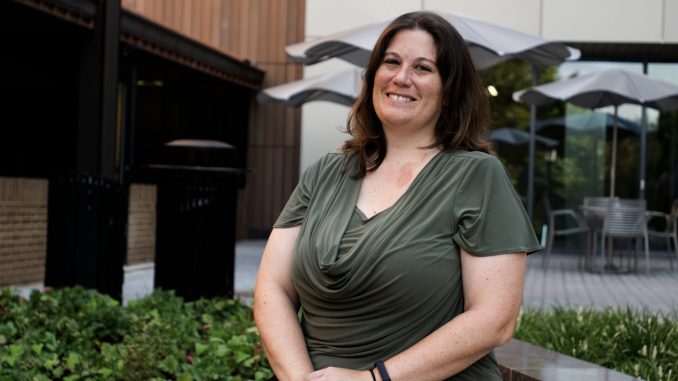
Kim Corona
kicorona@ursinus.edu
Ursinus College will continue to expand its efforts to recycle and maintain its streak of being named a landfill-free institution by the Environmental Protection Agency.
Recently, the school launched a relationship with a new recycling and waste vendor, J.P. Mascaro and Sons. The Director of the Sustainability Office and class of 2005 alum, Kate Keppen, discussed how the company was chosen. As a director, she and the Facilities Department wanted to hear from students who are Sustainability Fellows on campus.
“Ultimately, the expanded recycling services, the ability to continue our waste-to-energy initiative, and the community commitment of J.P. Mascaro were the deciding factors,” she said. “One thing in particular that we felt was important was to continue diverting our waste from landfills and instead send it to incineration plants that convert the waste to energy.”
In 2017, Ursinus earned a spot on the Princeton Review’s Green Colleges list. The nomination is determined through the “Green Rating” score which ranges from 60 to 99. Institutions that receive over an 80 Green Rating were included in the list.
This past year, Ursinus College was #358 on the list of top green colleges according to The Princeton Review.
Before being added to the list, Ursinus was named national winner for reducing food waste by the Environmental Protection Agency (EPA). The school was one of the 13 organizations and businesses that diverted the highest amounts of food waste from landfills in the EPA’s Food Recovery Challenge.
Keppen explained that last year, Ursinus only had the capacity to recycle #1 and #2 plastics. However, that will change with J.P. Mascaro since they own and operate their own recycling center.
“So, as of July of 2019, we can now recycle plastics 1-7 (look for the small triangle on the plastic). This means there is much more plastic going to be recycled than previously,” she said.
Keppen stresses that the school’s number one issue when it comes to recycling is “hope-cycling.” This is when someone is unsure if something is recyclable or not. The issue is many people will often incorrectly put the item in the recycling bin and hope that it will be recycled.
“Honestly, if you are unsure about something, put it in the waste bin. I know this advice sounds odd coming from a sustainability advocate, but what happens when we ‘hope-cycle’ is that the recycling stream becomes contaminated with items that can not be recycled and it is critically important that our recycling contains actual items that can be recycled,” she said.
Keppen stated that if any item contains food such as paper towels, tissues, paper, foam cups, and more should be thrown in the trash bin.
Since the time she graduated and came back, Keppen has seen a fast change in the school’s efforts to become more environmentally aware. The Office of Sustainability didn’t exist when she was still a student at Ursinus and the organic farm didn’t start until the year after she graduated. It wasn’t until students kept expressing interest in implementing sustainable projects on campus and in 2007 when then President, John Strassburger, signed the American College and University Presidents’ Climate Commitment which committed the school to create a plan to become carbon-neutral. These two occurrences aided the formation of the Office of Sustainability.
Keppen says individuals should think about their own actions and how it can ultimately affect the planet.
“Recycling and waste reduction helps the College meet its carbon neutrality goals, but ultimately, it goes to show that something that is not really talked about on a day-to-day basis can really affect how we want to live together as a community,” she said.
